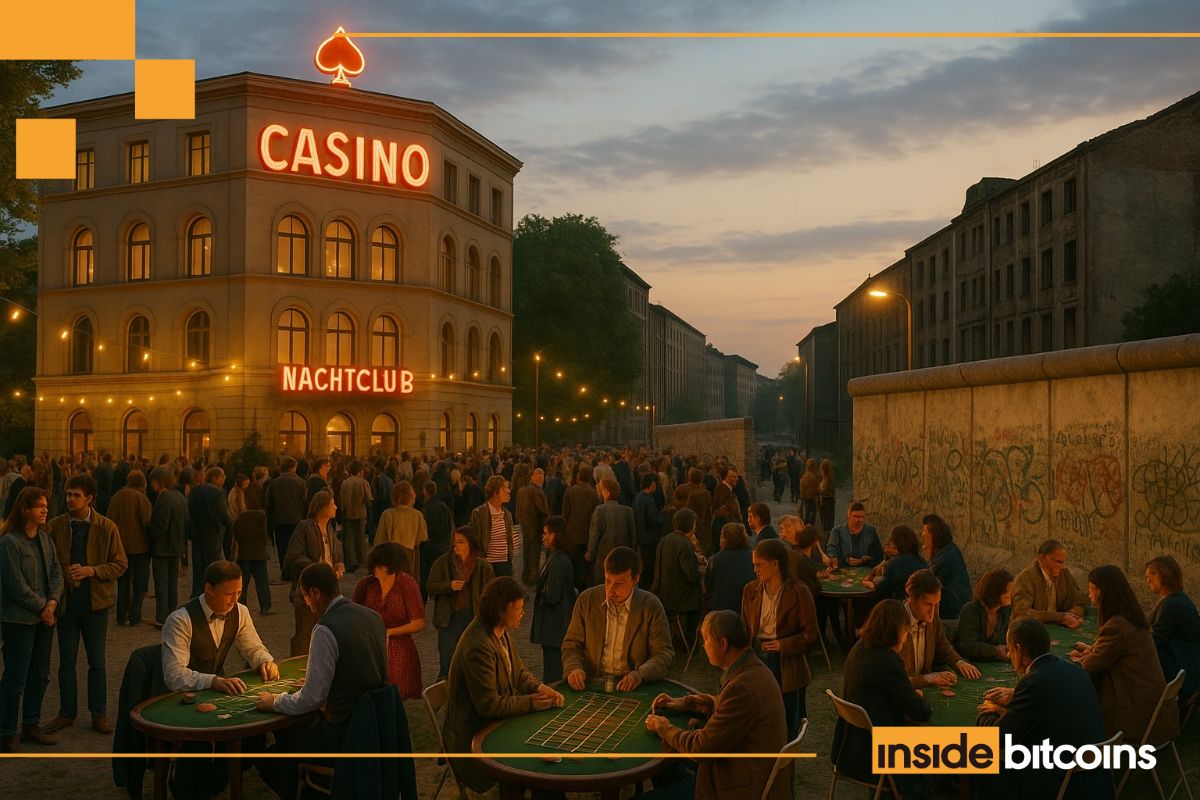Germany’s relationship with gambling has undergone a dramatic transformation that spans centuries, culminating in the current regulatory framework that’s generating heated debate across the industry. The journey from medieval dice games to today’s sophisticated digital platforms reflects broader social and political shifts that continue to shape policy decisions. What started as simple games of chance in taverns has evolved into a multi-billion-euro industry that generates approximately €23.04 billion in gambling revenues as of 2025.
The modern regulatory landscape began taking shape with the Imperial Gambling Act of 1872, which banned gambling houses entirely. This restrictive approach continued through various political regimes until the post-war period, when West Germany reopened casinos in 1950. The 1970s marked another pivotal moment with the legalization of state-run sports betting and lotteries in 1972, establishing the foundation for today’s mixed public-private gambling ecosystem.
The introduction of the Interstate Treaty on Gambling in 2008 represented Germany’s first serious attempt to address online gambling, though it initially implemented a quasi-total ban on most digital gaming activities. This approach proved ineffective, creating a thriving black market that operated with minimal oversight while legitimate operators struggled with unclear regulations. Before July 2021, nearly all online gambling offerings were prohibited, yet enforcement against unregulated operators was practically non-existent.
The 2021 Revolution: Glücksspielstaatsvertrag Takes Effect
The Fourth Interstate Treaty on Gambling, known as the Glücksspielstaatsvertrag (GlüStV), fundamentally altered Germany’s approach when it took effect on July 1, 2021. This comprehensive legislation unified all 16 German federal states under a single regulatory framework, finally legalizing online casinos, poker, sports betting, and virtual slot machines nationwide. The treaty replaced the fragmented patchwork of regional laws that had created confusion and regulatory arbitrage opportunities.
The new framework established the Gemeinsame Glücksspielbehörde der Länder (GGL) as the central regulatory authority, based in Halle, Saxony-Anhalt. This joint gambling supervisory authority began operations on July 1, 2022, initially focusing on enforcement measures against illegal operators. By January 1, 2023, the GGL assumed full responsibility for licensing and regulatory oversight from various state authorities.
The licensing system introduced strict requirements for operators, including mandatory identification checks, technical systems for early gambling addiction detection, and compliance with specific stake and deposit limits. As of October 2024, the regulator has granted 30 sports betting licenses, 39 virtual slot machine licenses, and five online poker licenses to private operators. These numbers reflect the controlled liberalization approach that prioritizes player protection over market growth.
Current Market Dynamics and Financial Performance
Germany’s gambling market has experienced significant growth despite regulatory constraints, with the regulated market generating €13.7 billion in gross gaming revenue during 2023. Online gambling contributed €3.0 billion of this total, with sports betting accounting for €1.8 billion and online slots and poker contributing €400 million. However, recent trends show concerning signs of stagnation, as 2024 gambling tax revenues flatlined at €2.9 billion, barely matching 2023 figures.
The sports betting segment demonstrated resilience with a 5% upturn in tax revenues during the first 11 months of 2024. In stark contrast, online casino and slots tax revenues crashed by 16% in the same period, representing a compound 47% loss since 2022. This decline has renewed industry calls for regulatory relaxation, with critics arguing that excessive restrictions are driving players to unlicensed offshore operators.
Market channelization remains a critical challenge, with licensed providers capturing only between 20% and 40% of online slot activity according to industry estimates. This poor channelization rate contrasts sharply with more liberalized markets like Denmark and Sweden, where regulated operators capture over 90% of gambling activity. The German black market recorded between €400 million and €600 million in gross gaming revenue during 2023, representing approximately 4% of the overall market.
The Controversial Deposit Limit System
The monthly €1,000 deposit limit stands as one of the most contentious aspects of Germany’s regulatory framework. This restriction applies across all licensed operators and is enforced through LUGAS, a cross-national monitoring system that tracks player deposits in real-time. The system prevents players from circumventing limits by simply switching between different gambling sites.
However, the implementation of deposit limit increases has proven problematic and controversial. While players can theoretically increase their limits to €10,000 monthly by demonstrating financial capacity, a 2022 court settlement quietly altered the verification process. Instead of requiring comprehensive financial documentation like tax returns or bank statements, operators can now rely on Schufa G credit checks. This change has drawn criticism from addiction experts and policymakers, as the Schufa G system doesn’t provide accurate income assessments. Tobias Hayer, a gambling addiction expert from the University of Bremen, warns that at-risk gamblers are likely exploiting these relaxed verification requirements. Germany’s addiction and drug policy commissioner, Burkhard Blienert, has condemned the arrangement as prioritizing industry profits over public safety.
The deposit limit system includes additional tiers, with some players qualifying for limits up to €30,000 monthly under extremely restrictive conditions. However, only 1% of a provider’s active players can qualify for these highest limits, and the verification process includes enhanced monitoring requirements. Players can also increase their LUGAS limit to €3,000 monthly through their personal player accounts without operator consent.
The €1 Stake Limit Controversy
The €1 maximum stake limit on online slot machines has generated intense industry criticism and significantly impacted player behavior. This restriction pushes average stakes down to €0.52, approximately 50% below the global average across major gaming networks. The limitation creates the second-lowest average bet size among all European markets studied.
Beyond the financial constraints, the regulation imposes additional gameplay restrictions that further limit player engagement. Players can only access one game at a time, with fixed spin speeds and mandatory wait times between spins. These limitations result in an average of just 59 bets per session, significantly lower than less restrictive markets. In Greece, where similar low stake limits exist, average bets per session are 30% higher, while Romania, which doesn’t impose such restrictions, sees 50% higher session activity.
The restrictive environment has influenced game design and player preferences in unexpected ways. German players now prefer higher volatility games more than any other market studied, seeking maximum entertainment value from their limited stakes. Free spins have become the dominant bonus feature, appearing in 85% of the top 20 slot games in Germany, as they extend gameplay without additional spending.
These restrictions have practical implications beyond player experience. Industry data suggests that the limitations encourage players to seek alternatives on unregulated platforms that ignore stake limits entirely. This regulatory arbitrage undermines the policy’s consumer protection objectives while reducing tax revenues for the German state.
Enforcement Challenges and Black Market Persistence
The GGL has intensified enforcement efforts since assuming full regulatory authority, processing 438 cases of suspected illegal gambling or advertising during 2023. The regulator checked 1,864 websites and proceeded to block 133 operations, with 87 related to illegal gambling services and 46 connected to black market advertising. These enforcement actions resulted in 63 black market operators discontinuing their services following prohibition orders.
However, enforcement effectiveness remains limited by jurisdictional constraints. The GGL notes that providers who ignore prohibition orders are often based in countries outside the European Union, making enforcement extremely difficult. The regulator imposed only two fines of €50,000 each during 2023, highlighting the challenges of deterring well-funded international operators.
The persistence of the black market reflects deeper structural issues with Germany’s regulatory approach. The combination of restrictive stake limits, deposit caps, and limited game variety creates incentives for players to seek alternatives. Licensed operators argue that they cannot compete effectively with unregulated platforms that offer unrestricted gameplay and higher betting limits.
Tax policy compounds these competitive disadvantages. Germany’s 5.3% turnover tax is considered excessive by industry standards, further reducing licensed operators’ ability to compete on promotions and player rewards. This creates a cycle where restrictive regulations drive players to black market operators, reducing tax revenues and undermining the regulated market’s development.
Comparing Germany with European Neighbors
Germany’s restrictive approach contrasts sharply with regulatory frameworks in neighboring countries, creating significant competitive and policy tensions. Austria maintains a largely monopolized online casino market with limited private operator participation, though the European Court of Justice has repeatedly ruled this system incompatible with EU law. Despite these rulings, Austrian courts continue reaching conflicting decisions on the gambling framework’s compatibility with European regulations.
Belgium requires online operators to partner with existing land-based casinos to satisfy local establishment requirements, but otherwise permits private operation of most gambling products except lotteries. This hybrid approach provides more market access than Germany’s current system while maintaining regulatory oversight. France permits online sports betting and poker but maintains a complete ban on online casino games.
The Netherlands implemented its own licensing regime for online gambling, creating a more liberalized environment than Germany’s current framework. Denmark operates a fully regulated market with comprehensive licensing systems that have achieved high channelization rates. These successful models demonstrate alternative approaches that balance player protection with market functionality. The European Union’s influence on gambling regulation cannot be understated, with multiple court cases and directives challenging restrictive national approaches. The European Court of Justice previously ruled against Austrian and German state monopolies, finding that promotional activities undermined consumer protection objectives. These precedents suggest continued pressure for liberalization across restrictive European markets.
Social and Political Implications
Germany’s gambling regulation debate reflects broader social tensions about addiction, consumer protection, and state responsibility. Approximately 500,000 people in Germany are estimated to be addicted to gambling, with each addiction affecting up to 15 additional people psychologically, socially, or financially. These statistics underscore the legitimate public health concerns driving restrictive policies.
The football industry has become a particular flashpoint for gambling regulation debates. Despite various prohibitions, as many as 9 million young people in Germany have gambling experience, while approximately 10% of professional and amateur footballers demonstrate problematic gambling behavior. These concerns led supporter organization Unsere Kurve to demand stricter advertising restrictions and sponsorship limitations.
Political dynamics around gambling regulation vary significantly between federal and state levels. While some SPD-run states like Bremen call for even tougher restrictions, including complete advertising bans, federal-level politicians tend toward more pragmatic approaches. The less gambling-skeptical CDU party shows greater willingness to examine market developments and consider regulatory reforms.
The upcoming 2026 treaty review has become a focal point for industry advocacy and policy reform efforts. The German Online Casino Association actively lobbies for reduced regulatory burdens and increased enforcement against illegal operators. Recent membership additions, including major operators like Zeal Network, demonstrate growing industry coordination around regulatory reform objectives.
Technical Innovation and Regulatory Adaptation
Germany’s regulatory framework has necessitated significant technical innovation in gambling systems and player monitoring. The LUGAS cross-provider monitoring system represents one of the most sophisticated player tracking systems globally, requiring real-time data sharing between all licensed operators. This technical infrastructure enables comprehensive deposit limit enforcement but also raises privacy and data protection concerns.
Operators must implement early gambling addiction detection systems as part of their licensing requirements. These systems monitor player behavior patterns and trigger interventions when problematic gambling indicators emerge. The effectiveness of these technical solutions remains under evaluation as the regulated market matures.
The mandatory “panic button” feature allows players to immediately block their activity for short periods, providing a cooling-off mechanism during intense gambling sessions. Combined with information sharing between providers, these technical measures aim to prevent problem gamblers from simply switching platforms to continue play.
Mobile gambling has become increasingly important in the German market, with approximately 80% of German citizens owning smartphones. This widespread mobile adoption drives growth in the regulated online gambling sector, though technical restrictions around simultaneous game play and spin speeds limit engagement compared to international markets. Another sector that has been experiencing growth has been online crypto gambling.
The ongoing challenge for regulators involves balancing technical innovation with player protection objectives while maintaining competitive market conditions. As the 2026 review approaches, stakeholders continue debating whether current technical requirements effectively achieve their consumer protection goals or simply drive players to less regulated alternatives.


